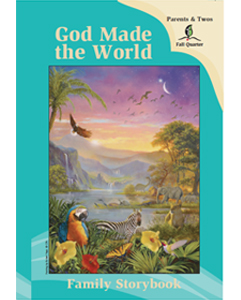So I peeked in my fifth grader’s room to find her reading her Bible this morning.
“You readin’ the Bible?” I asked with a smile.
“Yeah.” she said.
“Whatcha readin’?”
“Genesis 2.”
“Well, lemme know if you have any questions. Not that I have answers, but it’d be great to talk about it.”
I came back around after a few minutes.
“Any thoughts?”
“Yeah. I didn’t know the Tigris and Euphrates were that old!” she said.
I wonder how those with a nuanced view of Scriptural inspiration and non-literal understandings of Adam convey that to their elementary school-age kids.
“Well, honey…” I bumbled, after a long pause. “The Bible is inspired by God. It was also written by people in ancient Israel, to people in ancient Israel. Those people didn’t have a camcorder out to record what happened 200,000 years ago when the first humans walked the earth. There wasn’t even writing back then.”
I saw the window of attention span closing, as her siblings had turned on a movie in the other room. I moved to wrap it up. “There are a lot of different ways to understand the story of Adam and Eve. I will say that humanity started in Africa, not Iraq. Anyway, I guess I’m not really being clear. But does any of that make sense?”
“Not really,” she admitted.
So… I’m hoping to do better on round two! 
What struck me in this exchange was how even concordist readings of Adam have to grapple with details like the Tigris and Euphrates being there in the Garden. I suppose this speaks to the relative strength of either approaches like Dr. Swamidass’s (i.e., yes, Adam was in the Ancient Near East, and his genes made their way to all of us) or approaches that emphasize Adam as an “everyman” (the details are less important because this was God’s truth about universal sinfulness found in a story set in the Ancient Near East). If we try to blend it to say that Adam was one of the first homo sapiens in Africa, the details get somewhat more challenging.
There isn’t really a clear question here, but I would be interested to hear people’s thoughtful reactions.

